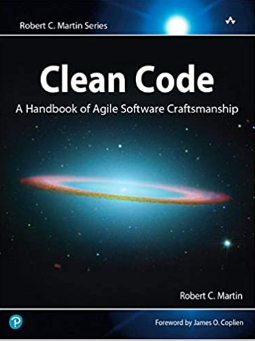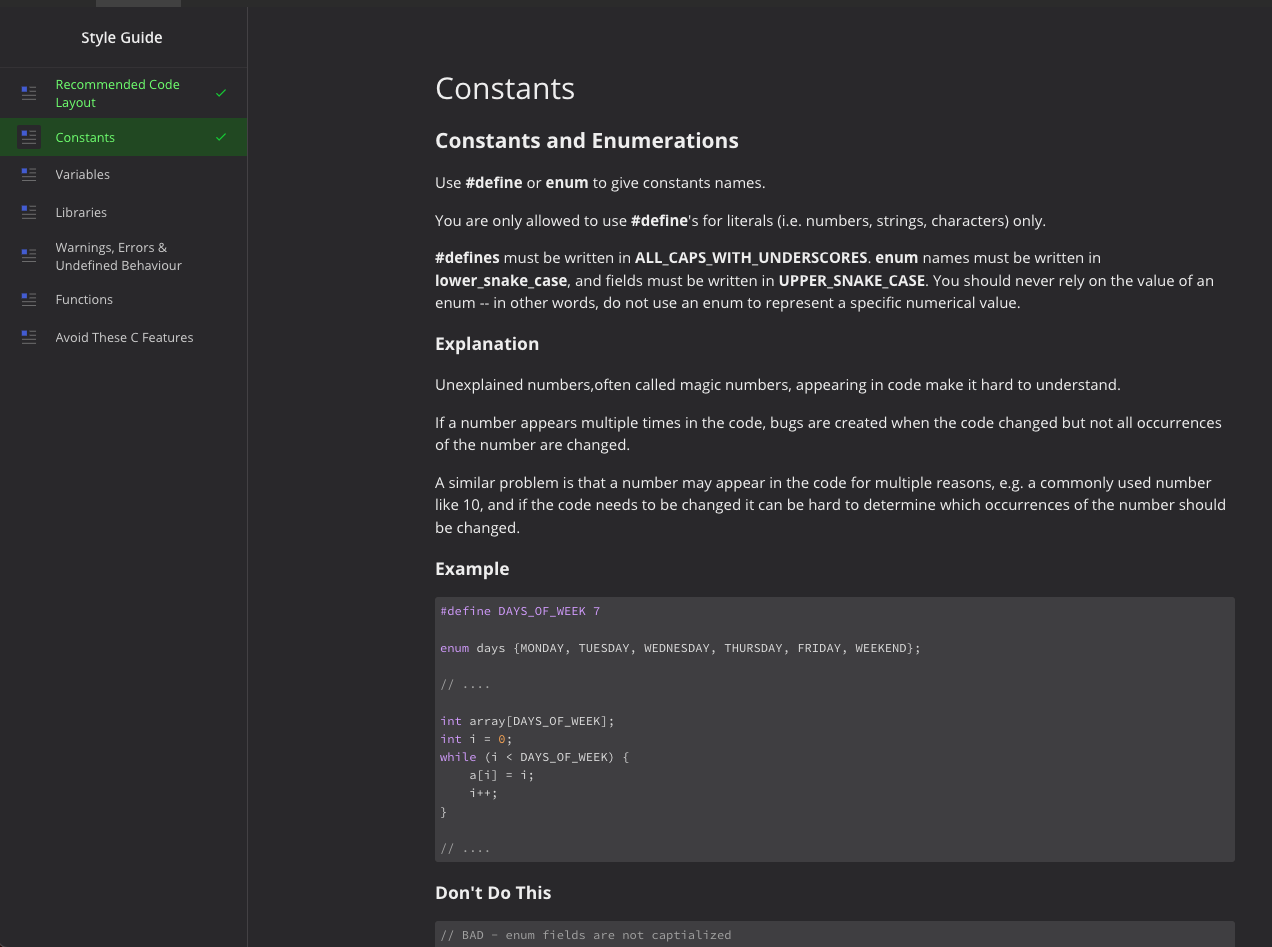Week 5 Lecture 1
Tools to help you
- DCC Help
- DCC Sidekick
- https://bytesized-prod.vercel.app
Style
How to write clean code
struct thingy {
int x;
double y;
};
int calcualte_result(struct thingy x, struct thingy y) {
if((x.x - y.y) > (y.x - x.y)) {
return 0;
} else if ((y.x - x.y) > (x.x - y.y)) {
return 1
} else {
return -1;
}
}
int main(void) {
struct thingy x;
x.x = 50;
x.y = 5.0;
y.x = 45;
y.x = 2.5;
calculate_result(x, y);
}
Book suggestion
- I don't recommend many books
- This is a good one

1511 has a style guide
Follow the style guide (will be marked)
There is no right style guide, but you should follow it

Let's fix this up:
struct thingy {
int x;
double y;
};
int calcualte_result(struct thingy x, struct thingy y) {
if((x.x - y.y) > (y.x - x.y)) {
return 0;
} else if ((y.x - x.y) > (x.x - y.y)) {
return 1
} else {
return -1;
}
}
int main(void) {
struct thingy x;
x.x = 50;
x.y = 5.0;
y.x = 45;
y.x = 2.5;
calculate_result(x, y);
}
Command Line Arguments
So far...
We can pass input into functions:
int cool_calculation(int x, int y)int x,int yare the input, or arguments into the function
We can use the input to determine how the function runs
int cool_calculation(int x, int y) {
if (x > 0) {
// do something when x is positive
} else {
// do something if x is negative
}
}
How can we do this for entire programs?
Command Line Arguments
Command Line Arguments
- We can provide input via user input (
scanf) - Maybe we don't want the input to come from the user, or we already have the input
- We would like to be able to pass input to a program
- We can modify
mainto allow for CLI
before
int main(void) {
}
after
int main(int argc, char *argv[]) {
//...
}
Quick demo
String to int
- Sometimes we want to read in numbers
- But all standard input is text-based
6is really"6"
Use the atoi() function to convert strings to integers
Stands for ASCII to Integer
Included instdlib.hatoi(const char *str)atol,atofandatollall exist (long, float, long long)
One more thing:
- Counting while loops is common :
int i = 0
while (i < SOME_NUM) { i++; }
- So common, that a syntactical sugar exists that makes it a little easier
While loop
int i = 0
while (i < SOME_NUM) {
...
i++;
}
For loop
for (int i = 0; i < SOME_NUM; i++) {
...
}
Connect 4
Feedback
